#indigenousRIGHTS
Explore tagged Tumblr posts
Text
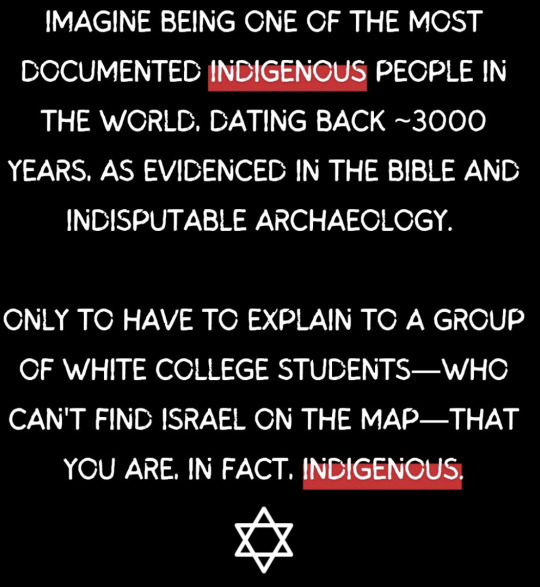
Jews are indigenous to Israel. That's a fact. Just because some of us, although not most of us, look white doesn't mean we are not indigenous. Do you know how close Israel is to Europe? Do you know how many Arabs look white too? Are you aware of genetics? Do you know that 58% of Israelis are not white? Do you know that Jews lived in Israel continuously for thousands of years? You cannot colonize your ancestral homeland. Stop forcing your own white narrative from other places in the world onto the Middle East. This land was not stolen. Every piece of land the Jews lived on prior to 1948 was legally bought. Then the Arabs started a war and most Arabs left at the encouragement of the Arab countries. Some were expelled from their homes but that's what happens in wars. Those were the minority of cases. The ones who stayed enjoy equal rights in Israel - much better than they would in any other Arab country. In contrast, ALL Arab countries expelled their Jews including my family from Egypt. 900,000 Jews left their homes in Arab countries and 700,000 Arabs left their homes in what became Israel. It's called a population exchange which is common all over the world in wars and happened around that time to many other people. But you only protest this one? Ask yourself why .
dr__naama
#istandwithisrael#israel#palestine#gaza#indigenous#indigenousrights#marchonwashington#humansofjudaism#amyisraelchai#washingtondc#israelrally#marchforisrael#bringthemback
310 notes
·
View notes
Text
https://www.linkedin.com/pulse/we-nature-defending-itself-llewelyn-pritchard-ma-8fnee/ https://docs.google.com/document/d/e/2PACX-1vQ0c5_hVyPStAXyQdKYBLajK7vMGnKyjakj4nl5qhOx-XoVODc88PEwh_TKSAKU1GMGicHruKfd6c6N/pub 'WE ARE NATURE DEFENDING ITSELF' please donate to XRUK - help make change happen Extinction Rebellion UK @XRebellionUK 28 April 2024
https://chuffed.org/project/here-we-come?&utm_campaign=HereWeCome&utm_source=Email&utm_medium=Email&utm_content=UKEmail_footer&link_id=9&can_id=1d13f00141174f49f876c8794b61f490&email_referrer=email_2294094&email_subject=_-big-give-fundraiser-success-_ STAND UP FOR NATURE TODAY Your donation calls out against the struggles nature is facing - polluted rivers, lost woodlands, habitats diminishing. Joining us is Nature’s only hope right now! XRUK @XRebellionUK 25 April 2024
#DefendNature#pFITE#PoetryAndFolkInTheEnvironment#CivilResistance#GlobalCitizens#Leaders#FailedLeadership#HumanRights#RootCauses#ClimateCrisis#CostOfLivingCrisis#ClimateJustice#CostOfLivingClimateJusticeSolutions#Justice#ClimateJusticeValuations#StopEcocide#StopGenocide#LandBack#SelfDetermination#FreeUkraine#FreePalestine#CeasefireNow#RightsOfNature#SaveTheBees#CeasefireNOW#Regeneration#IndigenousRights#HumanIndigenousRights#Beliefs#BeliefSystems
4 notes
·
View notes
Text
Happy Canada Day – July 1st: A Time for Celebration and Reflection Shaina Tranquilino July 1, 2024
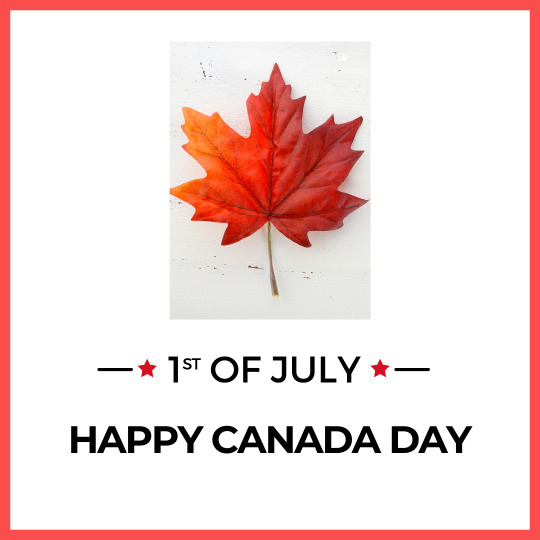
Canada Day, celebrated every July 1st, marks the anniversary of the Confederation when Canada became a self-governing dominion within the British Empire in 1867. This day is often filled with festivities, fireworks, parades, and patriotic displays as Canadians come together to celebrate their nation.
Yet, amidst the jubilations, it is crucial to remember that Canada’s history is complex and multifaceted. This land we celebrate on Canada Day is also the ancestral and unceded territory of Indigenous peoples who have lived here for thousands of years. As we don our red and white attire and wave our flags, we must also take time to honour and acknowledge this truth.
Celebrating Canada’s Achievements
Canada has much to be proud of. From breathtaking landscapes and natural beauty to multicultural cities and a reputation for politeness and peace, Canada stands out on the global stage. Our contributions to science, technology, art, and humanitarian efforts are commendable. Canadians have a rich heritage of resilience and innovation, and Canada Day is an opportunity to celebrate these achievements and the diverse fabric that makes up our nation.
Acknowledging Indigenous Land
However, alongside these celebrations, we must recognize that Canada’s history is deeply intertwined with the histories of Indigenous peoples. Before European settlers arrived, Indigenous communities had established thriving societies with their own cultures, languages, and governance structures. The process of colonization led to the displacement, suffering, and marginalization of these communities.
Acknowledging that we are on stolen Indigenous land is a vital step towards reconciliation. It means recognizing the sovereignty of Indigenous nations and understanding that the lands we live on were not given up willingly. It is about honouring treaties and commitments that have been made—and too often broken—and working towards meaningful, respectful relationships with Indigenous peoples.
Doing Better as a Country
As we celebrate Canada Day, it is also a time to reflect on how we can do better. This includes:
Educating Ourselves and Others: Learn about the history and cultures of Indigenous peoples in Canada. This knowledge can foster greater understanding and respect.
Supporting Indigenous Communities: Advocate for policies and initiatives that address the disparities faced by Indigenous peoples. Support Indigenous businesses, artists, and organizations.
Acknowledging Land Rights: Understand and respect the concept of Indigenous land rights and the significance of land acknowledgments. These acknowledgments should be more than just words; they should be accompanied by action and commitment.
Promoting Reconciliation: Engage with the Truth and Reconciliation Commission’s Calls to Action. These recommendations provide a roadmap for repairing relationships and creating a more equitable society.
A Day of Unity and Reflection
Canada Day is not just a day for celebration but also a day for reflection. It is an opportunity to come together as a nation, acknowledging both our triumphs and our responsibilities. By recognizing the full scope of our history and committing to a path of reconciliation, we can honour the true spirit of Canada—a spirit of inclusion, respect, and unity.
So, as we celebrate Canada Day this year, let’s take a moment to acknowledge the land we are on, honour the Indigenous peoples who have cared for it long before us, and commit to actions that foster understanding and justice. Only then can we truly celebrate the beauty and promise of Canada.
Happy Canada Day! Let's celebrate and reflect together.
#CanadaDay#HappyCanadaDay#IndigenousLand#Reconciliation#IndigenousRights#CelebrateAndReflect#CanadianHistory#TruthAndReconciliation#UnityInDiversity#HonorIndigenousPeoples#CanadaDay2024#RespectAndRecognition#LearningAndGrowing#CanadaStrong#InclusionAndRespect
3 notes
·
View notes
Text
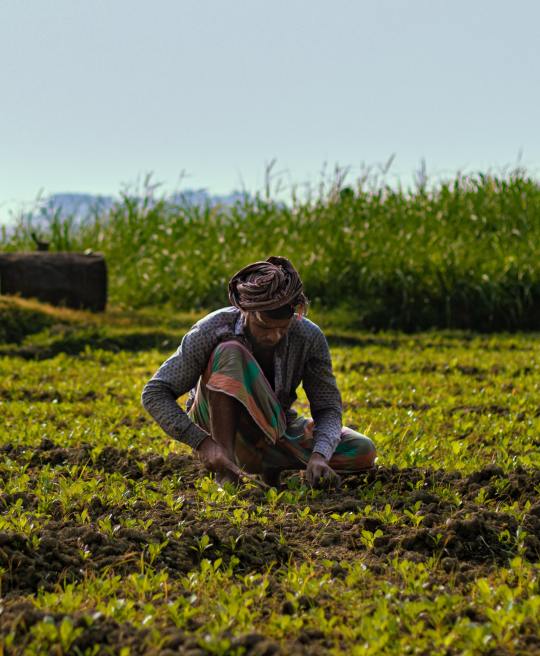
Unveiling the Plight: The Negative Impact of Seed Theft on Indigenous Communities
The theft of seeds from indigenous communities has far-reaching consequences, posing a grave threat to their cultural identity, food security, and sustainable practices. In this exploration, we shed light on the alarming repercussions of seed theft, underscoring the urgent need to address this issue. From the loss of traditional crops to the disruption of ecosystems and the erosion of indigenous rights, the impacts are both profound and multifaceted. Together, we must stand against seed theft and advocate for the preservation and empowerment of indigenous communities.
Effects of Seed Theft on Indigenous Communities:
Loss of Cultural Heritage: Seed theft undermines indigenous communities' ability to preserve their cultural practices and pass down traditional knowledge.
Threat to Food Security: The theft of indigenous seeds disrupts local food systems, reducing access to nutritious and culturally significant crops.
Erosion of Biodiversity: Seed theft contributes to the loss of diverse plant varieties, weakening ecosystems and diminishing resilience in the face of environmental challenges.
Disruption of Livelihoods: Indigenous farmers face economic hardships as their seed sovereignty is compromised, affecting their self-sustainability and economic independence.
Violation of Indigenous Rights: Seed theft infringes upon the rights of indigenous communities to control and protect their traditional seeds, exacerbating historical injustices.
Together, let us raise awareness about the negative impact of seed theft on indigenous communities and work towards promoting justice, preservation, and empowerment.
#SeedTheft#IndigenousRights#CulturalHeritage#FoodSecurity#BiodiversityLoss#SustainableFarming#EnvironmentalJustice#IndigenousEmpowerment#TraditionalKnowledge#PreservingHeritage
4 notes
·
View notes
Text
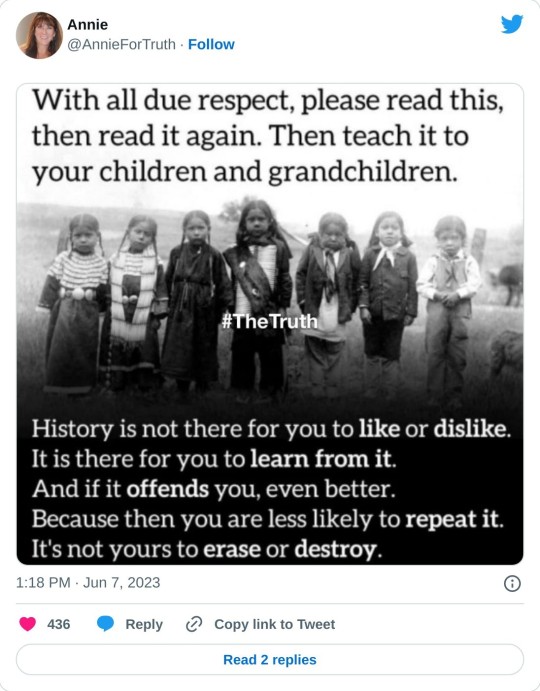
#history#herstory#ethics#integrity#girlpower#lgbtqrights#blm#indigenousrights#indigenous people#savedemocracy
2 notes
·
View notes
Photo
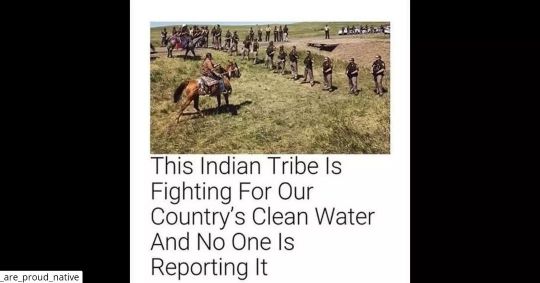
#Repost @we_are_proud_native • • • • • • Follow us >> @we_are_proud_native Follow us >> @we_are_proud_native . . All credits are reserved for their respective owners 💼 Credit 👉 📷: unknown (DM please) . . . #nativeamericanheritagemonth #Native #nativeamericanpride #nativeamericanbeauty #nativeamericanhistory #nativecultures #nativeamericanproud #nativefashion #nativeculture #nativeamericanstyle #nativewomen #indigenous #indigenouswomen #indigenouslivesmatter #indigenousartist #indigenousrights #indigenousknowledge #indigenousfashion https://www.instagram.com/p/CoFuwUqPpDS/?igshid=NGJjMDIxMWI=
#repost#nativeamericanheritagemonth#native#nativeamericanpride#nativeamericanbeauty#nativeamericanhistory#nativecultures#nativeamericanproud#nativefashion#nativeculture#nativeamericanstyle#nativewomen#indigenous#indigenouswomen#indigenouslivesmatter#indigenousartist#indigenousrights#indigenousknowledge#indigenousfashion
2 notes
·
View notes
Text
Mad world
We need everyone's help right now to protect the rainforest and Indigenous People
The Amazon Rainforest is under a massive threat. I know you've heard this a million times, but this is different. There is a piece of legislation that will decimate the rights of Indigenous people of Brazil, who have been protecting the rainforest. It's unfathomably bad. It has majority support. And they're voting tomorrow. As reported here, the Bill allows "the Brazilian government to find energy resources, set up military bases, develop strategic roads, and implement commercial agriculture on protected Indigenous tribal lands, without any prior discussion with the affected peoples."
The thing you can do—and I know this sounds overly simple—is sign this petition—and tell your friends to do the same: SIGN HERE.
As reported here, the Bill allows "the Brazilian government to find energy resources, set up military bases, develop strategic roads, and implement commercial agriculture on protected Indigenous tribal lands, without any prior discussion with the affected peoples."
Again, this bill has majority support. You may be wondering, why will a petition signed by people who don't live in Brazil make any difference? Because it will give those opposing it political air cover. It will show the world is with them.
But we need a LOT of signatures.
Please do this simple act and spread the word.
51K notes
·
View notes
Text
New Zealand Parliament rocked by debate over Maori rights
youtube
#rtbdnews#Youtube#NewZealandParliament#MaoriRights#HanaRawhitiMaipiClarke#MaoriCulture#HakaDance#WaitangiTreaty#IndigenousRights#Protest#MaoriHeritage#LegislationDebate#PeacefulMarch#NewZealandNews
1 note
·
View note
Link
Explore the powerful history and lasting impact of Aboriginal Australian land rights movements. Discover the struggles, triumphs, and ongoing journey for justice and recognition. #IndigenousRights #LandBack #History https://illuminatingfacts.com/the-history-and-impact-of-aboriginal-australian-land-rights-movements/
0 notes
Text
News | Oct 18, 2024
#2024#IsraelGazaConflict#LebanonUNPeacekeepers#ECB#ClimateFinance#CanadaIndiaRow#HurricaneMilton#30x30#GermanyPolitics#FoodSecurity#PalestinianRights#MiddleEastCrisis#Peacekeeping#EconomicRecovery#GlobalDiplomacy#NaturalDisasters#ClimateActionNow#Biodiversity#IndigenousRights#Geopolitics#WorldNews#InternationalAffairs#HumanRights#UN#GlobalEconomy#shorts#youtubeshorts#youtube#shortvideo#short
0 notes
Text

🌍 Celebrating the Rich Heritage of Indigenous Cultures on Indigenous Peoples Day 2024 🍂🌿
Today, we honor the profound history, vibrant cultures, and invaluable contributions of indigenous peoples around the world. Let’s recognize their wisdom, traditions, and the crucial role they play in environmental stewardship and cultural diversity. By learning from and valuing their knowledge, we can create a more inclusive and sustainable future. Join us in celebrating the spirit and resilience of indigenous communities everywhere!
#IndigenousPeoplesDay2024#HonorOurRoots#CapivisRespects#IndigenousWisdom#CulturalDiversity#PreserveHeritage#NativePride#IndigenousRights#EnvironmentalStewards#RespectIndigenousCultures#LearnFromThePast#SustainableFuture#GlobalSolidarity#CulturalPreservation#CelebratingIndigeneity
0 notes
Text
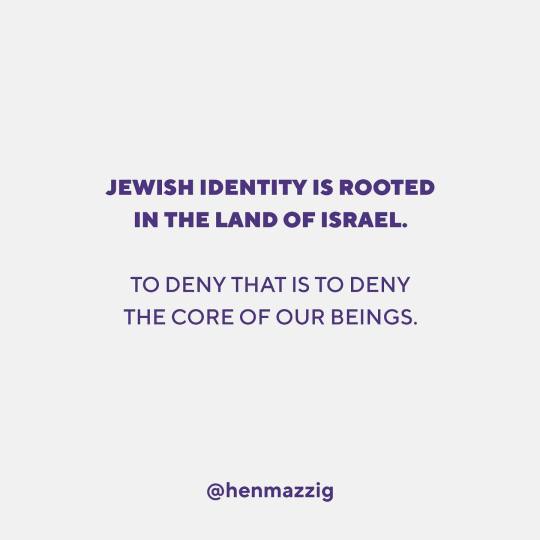
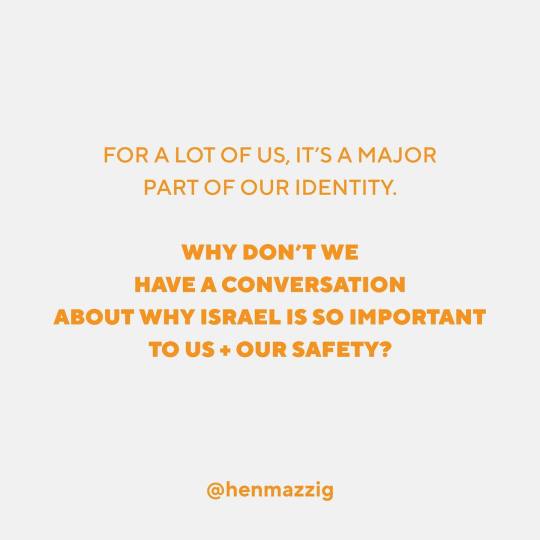
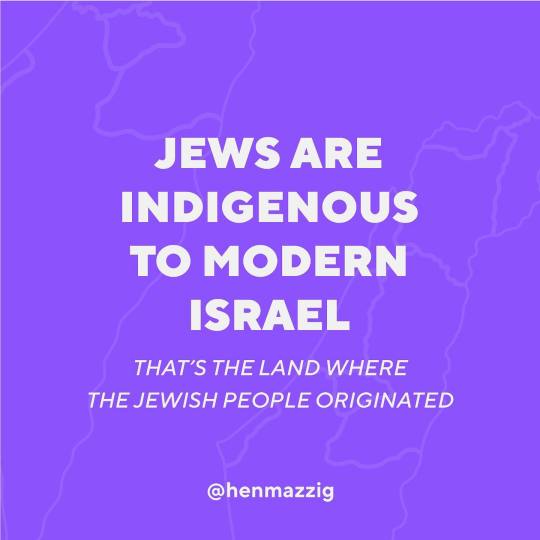


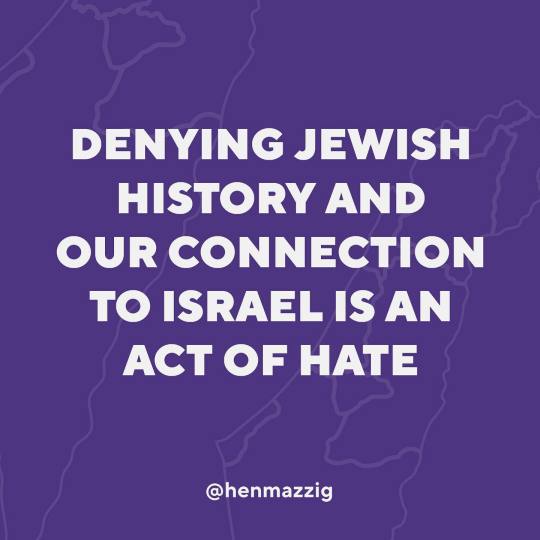
Embracing our roots and reaffirming our connection to our land.
From Jerusalem to the farthest corners of the globe, Jews have carried their identity with them. Today, as discussions on the Israel-Palestinian conflict continue to grow people apart, we delve into the question of indigeneity. Our historical and archaeological journey, spanning millennia, reveals the origins of Judaism in Judea, the land we now call Israel.
Displaced by conquests and dispersion, Jewish people were scattered across the world, leaving our mark in diverse lands from Europe to the Peruvian Amazon. Remarkably, even those who challenge our presence in Israel refer to us as Jews. Notably, even our adversaries like Hamas and Hezbollah acknowledge our right to identify as Jews, or in Arabic, "Yahud" ("Yehuda" meaning Judea).
As the evolving Indigenous rights movement invites nuanced perspectives, some may hesitate to consider us an Indigenous group, irrespective of our geographical history.
In this pivotal moment in history, Jews must reclaim our identity, recognizing ourselves not just as a religious group but as a nation rooted in Israel. This sentiment is what drives the vast majority of Jews worldwide to embrace Zionism and nurture a profound connection to our ancient homeland.
Hen Mazzig
#Jewish#Indigeneity#JewishHeritage#AncientHomeland#Israel#JewishIdentity#Zionism#IndigenousRights#✡️
33 notes
·
View notes
Text
CLIMATE JUSTICE VALUATIONS:
10 i)
https://www.linkedin.com/pulse/justice-llewelyn-pritchard-ma-uq6te/ Justice, Climate Justice, Human Rights, Rights of Nature, Climate Justice Valuations, Free Palestine, CeasefireNOW
https://www.linkedin.com/pulse/xr-humanitys-emergency-services-social-climate-local-rot-llewelyn-4e/ #XRHumanitysEmergencyServicesSocialClimateJusticeLocal Llewelyn Pritchard 31 March 2024
#Regeneration#RegenerativeMedecine#RegenerativeEducation#RegenerativeCulturalValues#RegenerativeCurriculum#Values#Valuations#ValuationStrategies#ClimateJustice#ClimateJusticeValuations#HumanRights#IndigenousRights#HumanIndigenousRights#ConnectWithTheLand#DoughnutEconomics#RightsOfNature#Beliefs#BeliefSystems#Faith#Trust#Health#HealthCare#MedicalTreatment#HiddenGem#EcologicalCare#ClimateCare#EcologicalClimateHealthCareTreatmentForMotherEarth#Governments#Education#ClimateEducation
3 notes
·
View notes
Text
Following Through on My New Year's Resolution: September Update Shaina Tranquilino September 30, 2024

At the beginning of the year, I set a resolution that felt deeply meaningful and personal: every month, I would donate to a different organization that I felt called to support. My goal wasn't just to give financially, but to invest in causes that resonate with my values, communities, and ongoing efforts for change. As we are at the end of September, I want to share a little about this month's donation and reflect on what this journey has meant so far.
For the month of September, I chose to donate to the Legacy of Hope Foundation (LHF), an Indigenous-led charitable organization that is dedicated to educating the public and raising awareness about the history and lasting impacts of the Residential School System in Canada. Established in 2000, the LHF has been doing the vital work of helping Canadians understand the trauma and ongoing challenges faced by Indigenous communities—particularly those who survived these schools, as well as their families and descendants.
I was moved to donate to the Legacy of Hope Foundation because of the important role they play in truth-telling, healing, and reconciliation. The Residential School System is a painful chapter in Canadian history, one that forcibly separated Indigenous children from their families, stripped them of their languages, cultures, and identities, and subjected them to harsh, abusive conditions. The effects of this system continue to ripple through generations, impacting the well-being of Indigenous communities.
Through education, exhibitions, and workshops, the Legacy of Hope Foundation not only illuminates this dark history but also provides a pathway for healing and fostering just and equal relationships between Indigenous Peoples and Canadians. Their work in expanding awareness, honouring survivors, and encouraging reconciliation is inspiring, and supporting them this month felt like a small but meaningful way to contribute to this vital movement.
What has been particularly powerful for me is the Foundation's focus on creating a space for healing and understanding. The work they do to showcase the resilience and strength of Indigenous Peoples, while also making known the injustices they have faced, is something we need more of in our world. It’s a reminder of the importance of not only learning from history but also taking active steps towards repairing harm.
Over the course of this year, each donation I've made has been an opportunity to reflect on what I value and how I can help create positive change in the world. From environmental causes to social justice initiatives, each organization I've supported has been a piece of a larger puzzle, one that is about compassion, equity, and the belief that even small actions can lead to big differences.
As I continue with this New Year's resolution, I'm filled with gratitude for the work being done by organizations like the Legacy of Hope Foundation. Their commitment to truth, reconciliation, and healing reminds me that while the road may be long, we are all part of the process of building a better, more inclusive future.
In the months ahead, I look forward to learning about new organizations, supporting diverse causes, and keeping the spirit of this resolution alive. It's been a rewarding and eye-opening journey, and I'm excited to see where the next few months take me.
If you're interested in learning more about the Legacy of Hope Foundation or supporting their work, I encourage you to visit their website and explore the many ways they're contributing to education and reconciliation across Canada.
Here’s to continuing the path toward positive change, one month, and one organization at a time. https://www.canadahelps.org/en/charities/legacy-of-hope-foundation/
#NewYearsResolution#MonthlyGiving#LegacyOfHope#IndigenousAwareness#Reconciliation#Healing#SupportIndigenousCommunities#ResidentialSchoolHistory#TruthAndJustice#GiveBack#Charity#IndigenousRights#EducateForChange#SocialImpact#Donate#LegacyOfHopeFoundation
1 note
·
View note
Text
The Apache Wars: A Fierce Struggle for Land and Freedom

Image generated by the author
What does it mean to be tied to a piece of land, to feel its pulse beneath your feet, and to carry its stories in your heart? For the Apache people, this connection transcended mere ownership; it was an intrinsic part of their identity. In the late 19th century, as the United States expanded westward, this bond was put to the ultimate test. The Apache Wars were not just a series of military confrontations; they were a profound struggle for land, freedom, and cultural survival against the relentless tide of encroachment.
Native Uprisings: A Land Under Siege
Imagine a sun-soaked desert, the air shimmering with heat, and the rugged mountains rising like ancient guardians over a landscape rich with history. This was the homeland of the Apache, a land they revered as sacred. Yet, as settlers pushed further into these territories, the Apache found themselves facing an existential threat. Their response was not one of submission but of fierce resistance, led by legendary warriors and leaders who refused to allow their way of life to be extinguished.
The Apache's connection to their land was rooted in a profound philosophy: "land is life, and life is land." This belief echoed through the generations, instilling a sense of purpose and resilience in Apache culture. The land was not merely a resource; it represented their identity, their history, and their future. As settlers encroached upon this ancestral territory, the Apache's fight became emblematic of the broader struggle against cultural erasure, a battle for their very essence.
Cultural Significance: The Heartbeat of Apache Identity
At the core of the Apache Wars was a cultural significance that went beyond military tactics. Leaders like Cochise and Geronimo emerged not just as war chiefs but as symbols of resistance, embodying the indomitable spirit of their people. Cochise, with his piercing gaze and commanding presence, rallied his people to protect their lands with a fierce tenacity that resonated through the canyons and valleys of the Southwest. Geronimo, a name that would echo in history, became synonymous with the relentless pursuit of freedom, representing the aspirations and struggles of countless Apache families.
The Apache people had a deep-seated belief that their existence was intertwined with the land. Their ceremonies, stories, and traditions were all steeped in this connection. The sentiment that "the land is our mother; we cannot abandon her" resonated deeply within Apache hearts. It was this unwavering bond that fueled their resistance and inspired them to adapt their strategies against modern military forces.
Historical Context: The Apache Wars Unfold
The Apache Wars spanned several decades, primarily occurring in the late 19th century as various Apache tribes, including the Chihuahua, Western, and Eastern Apache, faced the relentless advance of European settlers and U.S. forces. The westward expansion was driven by a voracious appetite for land and resources, resulting in treaties that were often broken, leading to a cycle of violence and retribution.
Strikingly, the Apache's guerrilla warfare tactics demonstrated their mastery of the rugged terrain. They utilized their intimate knowledge of the land to launch surprise attacks, outmaneuvering forces that were equipped with advanced weaponry. This adaptability showcased their enduring spirit and their determination to assert their rights and preserve their culture.
One significant event during this tumultuous time was the Camp Grant Massacre of 1871, where a group of Apache seeking refuge from the violence was brutally attacked. The massacre underscored the violent tensions between settlers and the Apache, revealing the tragic consequences of broken promises and hostility.
Resistance and Resilience: The Apache Spirit
The Apache Wars were emblematic of a broader fight for identity, land, and freedom. The values of community, resilience, and connection to the earth were deeply ingrained in Apache culture. Leaders like Cochise and Geronimo not only fought against external forces but also instilled in their people the importance of unity and strategic thinking.
In the face of adversity, the Apache spirit remained unbroken. Their storytelling traditions, steeped in lessons from the past, served as a guiding light for modern Apache communities. The narratives of their ancestors, passed down through generations, were not merely tales; they were living reminders of their heritage, instilling a sense of pride and purpose.
One poignant example is the story of a contemporary Apache woman named Kyle, a skilled healer who draws upon the wisdom of her ancestors. In a sacred ritual, she seeks guidance from the spirits of those who came before her, emphasizing unity and strength. This moment encapsulates the essence of the Apache spirit—a spirit that remains unyielding despite historical challenges.
Lessons from the Apache Wars: Resilience and Advocacy
The legacy of the Apache Wars extends beyond historical accounts; it offers critical lessons in resilience and advocacy that resonate in today’s world. Understanding these historical conflicts enhances modern society's appreciation for land and freedom.
Apache wisdom teaches the importance of community and connection. In an era where division often prevails, the Apache example serves as a reminder of the power of unity. By amplifying collective voices and fostering empathy through storytelling, communities can draw upon the strength of their shared experiences.
Moreover, the Apache approach to resilience emphasizes adaptability. Just as they navigated the changing circumstances of their time, modern activists can learn to pivot strategies in pursuit of justice and recognition. The Apache belief in respecting the land aligns seamlessly with contemporary environmental advocacy, emphasizing the interconnectedness of humanity and nature.
Modern Relevance: Ongoing Struggles for Justice
The teachings of the Apache people continue to resonate today, shedding light on enduring struggles for land and freedom. Their philosophies about the bond between people and the earth have become increasingly relevant in contemporary movements focused on environmental sustainability and social justice.
Modern activists, inspired by the spirit of resistance demonstrated during the Apache Wars, are advocating for indigenous rights and cultural preservation. Just as the Apache warriors fought valiantly for their home, today's activists strive to protect their communities and heritage.
Conclusion: The Legacy of the Apache Wars
The Apache Wars symbolize more than a fight for land; they encapsulate the struggle for identity, heritage, and freedom. The bravery and ingenuity of Apache warriors serve as a reminder of the lengths individuals will go to defend their homes and way of life.
As we reflect on this tumultuous chapter in American history, the Apache spirit shines brightly—a beacon of hope urging us to protect what we cherish and strive for justice. In a world still grappling with issues of land rights and cultural identity, the lessons from the Apache Wars remain pertinent.
In the words of the Apache, "We are not just fighting for ourselves; we are fighting for the future." And as we honor their legacy, it calls upon each of us to continue the fight for justice, equity, and the sacred connection we all share with the land.
AI Disclosure: AI was used for content ideation, spelling and grammar checks, and some modification of this article.
About Black Hawk Visions: We preserve and share timeless Apache wisdom through digital media. Explore nature connection, survival skills, and inner growth at Black Hawk Visions.
0 notes
Text
Panama's Mining Contract Sparks Protests: Indigenous Rights and Environment at Stake #environmentalimpact #indigenousrights #naturalresourceextraction #Panamaminingcontract #protests
#Business#environmentalimpact#indigenousrights#naturalresourceextraction#Panamaminingcontract#protests
0 notes